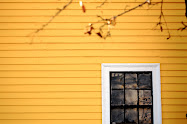Daffodils, grape hyacinth, violets
pepper a cleared space. The forest
envies these cultivars the way
seafood envies the vegetables
in the local market. You mean
nothing special to the heavy men
who peddle lobsters from the backs
of trucks on Friday afternoons—
merely another customer
hesitant, as most people are,
to drop a life form into a pot
of boiling water. But I like
the way you unpeg the claws
to allow them to open and grope
for the flesh of the oppressor
before you cook them forever
and wash down their tender meat
with gulps of Belvedere vodka.
And I like the way you ritualize
the cleanup by arranging the shells
in the fossil shape of the creature
before you formally consign
the scraps to the trash. The days
blossom so bravely in fact
and fiction. This First of May
you’ve celebrated with lobster,
vodka, and a bold new lover
chosen from available stock.
I like the way you rename them
after ancients. This one is Phidras,
but I don’t recognize the source
in Greek myth or literature.
No matter. My flowers tremble
in the gusty dawn and reclaim me
from envy of men you select
for a moment of star-shaped pleasure
fresh from the bottom of the sea.
Verbs of the Plausible
The most densely built-up city
in America has overlaid
itself with a carpet of turf,
patches of forest, and scattered farms.
Cambridge has embraced a dimension
unknown except to physicists
at MIT, who’ve rendered it
in vivid digital colors—
the fields nicely planted, the grass mown
by sheep, goats, cattle, horses.
I walk from Harvard to Central Square
along a gravel road rutted
by wagon wheels. When I step on grass
I feel through the layer of turf
the urban geometry below.
The ordinary sun dangles
in an ordinary metal sky.
Plumed birds utter tropical cries,
fanciful creations resolute
Darwinists applied to this scene
to tweak the bible beaters. I stride
as stridently as possible
to prove that adverb viable
as the digital landscape itself.
But I’m so alone. The farms look
deserted except for the oxen
moaning in their stalls, and the herds
grazing without casting shadows.
When I calculate I’ve reached
Central Square, I place both hands
on the turf and feel the roofs
of familiar buildings. The murmur
of science rises like the smoke
of a brush fire. No palpable words,
only the verbs of the plausible,
in which I don’t participate,
and nouns enough to animate
a texture a layman like me
might otherwise misread as dream.
William Doreski’s most recent collection of poetry is Another Ice Age (2007). He has published three critical studies, including Robert Lowell’s Shifting Colors. His essays, poetry, and reviews have appeared in many journals, including Massachusetts Review, Notre Dame Review, The Alembic, New England Quarterly, Harvard Review, Modern Philology, Antioch Review, and Natural Bridge.
